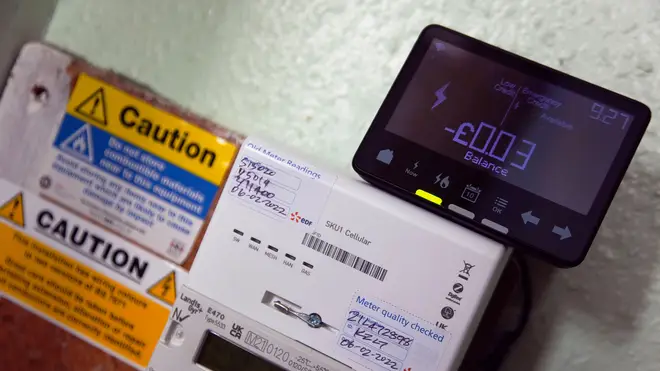
Nick Ferrari 7am - 10am
10 February 2022, 12:32 | Updated: 10 February 2022, 12:36

Millions of households in the UK could be offered tariffs on their energy bills with prices that update every half hour.
The change will see people paying more during peak times and less at quieter times throughout the year.
Three of Britain’s largest energy providers - EDF, Octopus and Scottish Power - have gotten behind the large-scale move.
It has been compared to an ‘Uber-style’ model that sees the taxi service charge a higher fee at busier times.
Energy regulator Ofgem says it will give the opportunity for customers to switch their energy usage down at peak times, like the evenings where they’re charged more.
They say this will save 11 million households money on their energy spending to those who opt in.
Time of use tariffs will be available to any customer with a smart meter. Currently, most customers are on tariffs that offer a flat rate for usage at any time.
Free smart meters have been introduced around the country to help households monitor and adjust their energy spend.
But, there are concerns that the changes will make tariffs too complex and become more expensive for households.
Read more: Cost of living crisis: How will the energy price cap rise affect you?
Energy suppliers EDF, Octopus and Scottish Power are among those that have backed the change.
Ofgem has requested suppliers bring in the changes to all smart meters by 2025.
An Ofgem spokesperson said: “This major system upgrade is a significant milestone on Britain’s path to net zero.
“It will enable a more efficient, flexible and greener energy system which will save billions of pounds per year on all consumers’ energy bills.”
This comes during an ongoing cost of living crisis in the UK.
Read more: Cost of living crisis: Most businesses say they'll hike prices as 1 in 20 consider closing
The energy bill price cap will rise by 54% in April - meaning a £693 per year increase for millions of households.
It also comes after pressure to revoke the controversial 1.25 percentage point rise in National Insurance was denied by Chancellor Rishi Sunak.
The annual bill for a typical household is due to go up from £1,277 to £1,971 from April.
But, Ofgem have ensured that “those in vulnerable circumstances remain protected.”